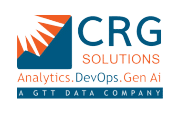In this changing technological advancements creating global disruptions, ensuring supply chain resilience has become a priority for businesses worldwide. Advanced analytics and business intelligence (BI) are playing major roles in transforming supply chain operations and helping companies to predict challenges, react to changes and maintain easy operations.
What is supply chain resilience?
Supply chain resilience is the ability to respond quickly to operational disruptions through flexible contingency planning and forecasting from material sourcing to logistics and the final delivery of products and services.
Real-Life Implementations
- Predictive Analytics in Inventory Management
Example: Walmart is one of the largest retail companies that is using predictive analytics to improve its inventory management. By analyzing past sales data, weather patterns and market trends, Walmart can predict demand for various products with accuracy. This helps the company to maintain inventory levels, reduce stockouts, and minimize excess stock. Walmart can thus guarantee that its shelves are stocked with the right products to improve customer satisfaction and reduce operational expenses.
- Real-Time Data Monitoring and BI Dashboards
Example: Procter & Gamble (P&G) utilizes real-time data monitoring and BI dashboards to gain comprehensive insights into its supply chain operations. By merging data from various sources like suppliers, logistics partners, and retail outlets, P&G can track the movement of goods in real-time. BI dashboards provide actionable insights, helping P&G to recognize bottlenecks, predict possible disturbance and take preventive measures. This real-time overview ensures that P&G maintains seamless operations and meets customer demands.
- Enhanced Supplier Collaboration through Advanced Analytics
Example: Toyota is a leader in the automotive industry which uses advanced analytics to improve collaboration with its suppliers. By sharing real-time data analytics with its suppliers, it improves predicting demand, production planning, and inventory
management. This approach helps suppliers be prepared to meet its requirements, reducing wait times and also reducing confusion. As a result, Toyota can maintain a resilient supply chain capable of adapting to changes and maintaining production without break.
- Risk Management and Scenario Planning
Example: Unilever employs advanced analytics for risk management and planning. By considering various scenarios like natural disasters or geopolitical events, it assess the impact on its supply chain and develops backup plans. These models help identify weaknesses and plan strategies to mitigate risks so that the company can continue to operate smoothly even when it faces unexpected challenges.
Benefits of Advanced Analytics and BI in Supply Chain Resilience
- Enhanced Visibility: Advanced analytics and BI tools provide real-time overview into supply chain operations, enabling companies to monitor and manage every step of the supply chain effectively.
- Risk Mitigation: Predictive analytics and scenario planning helps companies identify and mitigate future risks, ensuring supply chain consistently.
- Cost Efficiency: Inventory management and operations reduce costs and improve profitability.
- Customer Satisfaction: Best quality product availability and timely deliveries enhances customer satisfaction and loyalty.
In today’s business environments, optimizing supply chain resilience with advanced analytics and BI is not just a strategic advantage but has become a necessity. By adapting advanced analytics and BI, companies can build strong supply chains that are capable of withstanding distractions and adapting to changes to drive long-term success.
Embrace the power of analytics to drive data-driven decision-making and innovation within your organization. CRG solutions can partner with you on this and provide additional expertise and support throughout.




[…] In this changing technological advancements creating global disruptions, ensuring supply chain resilience has become a priority for businesses worldwide. Advanced analytics and business intelligence (BI) are playing major roles in transforming supply chain operations and helping companies to predict challenges, react to changes and maintain easy operations. […]